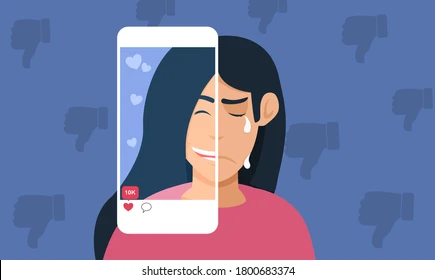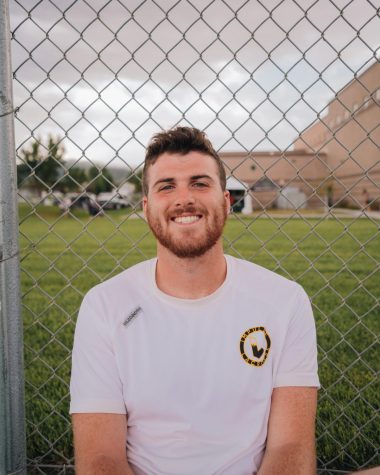Mental Health Decline Linked to Social Media

Social media and the rise of different social media applications have been linked to declining levels of mental health in all adults.
Mass General Brigham McLean recently brought forward an article about the impact of social media on somebody’s mental health and how that may lead to struggling day-to day.
According to a study done by the Pew Research center, 69 percent of adults use social media in some form of capacity. Over half of that percentage is on social media multiple times a day. The social media applications in question range from Twitter to Instagram, and include YouTube, Snapchat, and now TikTok, which has picked up a large amount of steam in the aftermath of the COVID pandemic.
The article explains that social media users are often chasing a reward that comes with large risk. That reward is the number of engagements that a post made by a user would potentially generate.
Psychologist Jacqueline Sperling likened the use of social media to a slot machine. “When the outcome is unpredictable, the behavior is more likely to repeat.”
In reference to her analogy with the slot machine: “If game players knew they were never going to get any money playing the game, they would never play.”
The reason that social media users come back for more content, even if it gives them feelings of depression and anxiety, is for the chance of that reward. That reward has been linked into the human’s brain as the release of dopamine. Dopamine is released when your brain experiences joy or excitement, which social media has been linked to along with the feelings of depression and anxiety.
Erik Poldroo, co-founder of The Zone, spoke on the impact of social media on an individual’s mental health, and indicated that it can be considered a reason for the rise in mental health struggles.
The Zone was founded by Poldroo and his co-founders to help athletes in all levels deal with their day to day mental health struggles.
“Overall, I see addiction being the main issue,” said Poldroo. “We’re seeing record rates of anxiety and depression due to being conditioned on the need of constantly feeling connected and the need to check our phone regularly. When we don’t, we feel off.”
For the athletes that own the app, Poldroo says that he makes it a point of discussion to stay off social media, and “especially during the season.”
Poldroo then added that he believes “it can help with your ability to truly focus, and maximize your time (in regards to staying off social media).”
Poldroo’s thoughts on the matter are backed by a study conducted by MIT that found the suicide rate among 10 to 24 year-olds increased by 57 percent from 2007 to 2017. 2007 is the year that TheFacebook, now Facebook, was launched at Harvard.
As for staying off social media, Poldroo mentioned that it is difficult to stay off of social media outlets all together, but emphasized putting “time limits on it” and “truly staying committed to that process can have tremendous benefits.”
Poldroo, along with co-founder Ivan Tchatchouwo, have partnered with Mercy College and SAAC, which a group of student athletes who work with one another to make sure athletics are always on the same page from an athlete standpoint.
The Zone, and SAAC, have put an emphasis on spreading positivity on social media through all Mercy College social media accounts. The Zone, prefers, however, that the time spent with positivity on social media is limited. The negative impact will soon creep in.

Zack Higgins is a 5th year Media Studies major at Mercy College. He is a previous student of Salisbury University, Onondaga Community College, and the...







